<< Previous | Displaying results 2071-2080 of 6813 for "" | Next >>
Edward was born to a Jewish family in The Hague. In 1929, the family moved to the United States. Because his father had difficulty finding employment, Edward and his family returned to the Netherlands in 1932. They were living in the town of Delft and running a small clothing store when war broke out. Germany invaded the Netherlands in May 1940. Anti-Jewish decrees were instituted, increasing in severity to the point that Jews could no longer own businesses and were forced to wear a yellow badge after May…
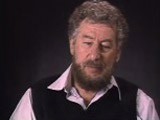
In the 1980s and 1990s, historian Peter Black worked for the US Department of Justice Office of Special Investigations, as part of a team tracking and prosecuting suspected war criminals. Black later served as the Senior Historian at the United States Holocaust Memorial Museum.
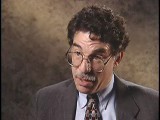
Norbert studied law and was a social worker in Berlin. He worked on the Kindertransport (Children's Transport) program, arranging to send Jewish children from Europe to Great Britain. His parents, who also lived in Berlin, were deported in December 1942. Norbert, his wife, and their child were deported to Auschwitz in March 1943. He was separated from his wife and child, and sent to the Buna works near Auschwitz III (Monowitz) for forced labor. Norbert survived the Auschwitz camp, and was liberated by US…
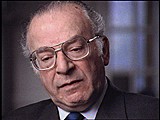
In Frankfurt, Ruth's family faced intensifying anti-Jewish measures; her father's business was taken over and Ruth's Jewish school was closed. In April 1943, Ruth and her family were deported to Auschwitz. Ruth was selected for forced labor and assigned to work on road repairs. She also worked in the "Kanada" unit, sorting possessions brought into the camp. In November 1944, Ruth was transferred to the Ravensbrueck camp system, in Germany. She was liberated in May 1945, during a death march from the…
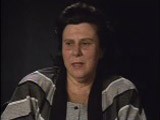
Describes the German destruction of the Slonim ghetto
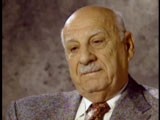
Describes punishment for spilling some food in the Auschwitz camp
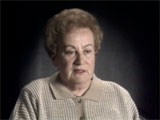
Describes her arrival in Sweden, at the war's end, with the aid of the Red Cross
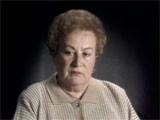
Describes assistance from the Red Cross at the end of the war
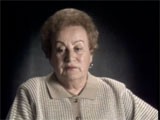
Describes Anne Frank's parents
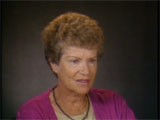
Describes using false papers and living in hiding
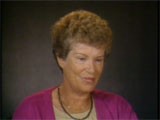
We would like to thank Crown Family Philanthropies, Abe and Ida Cooper Foundation, the Claims Conference, EVZ, and BMF for supporting the ongoing work to create content and resources for the Holocaust Encyclopedia. View the list of donor acknowledgement.